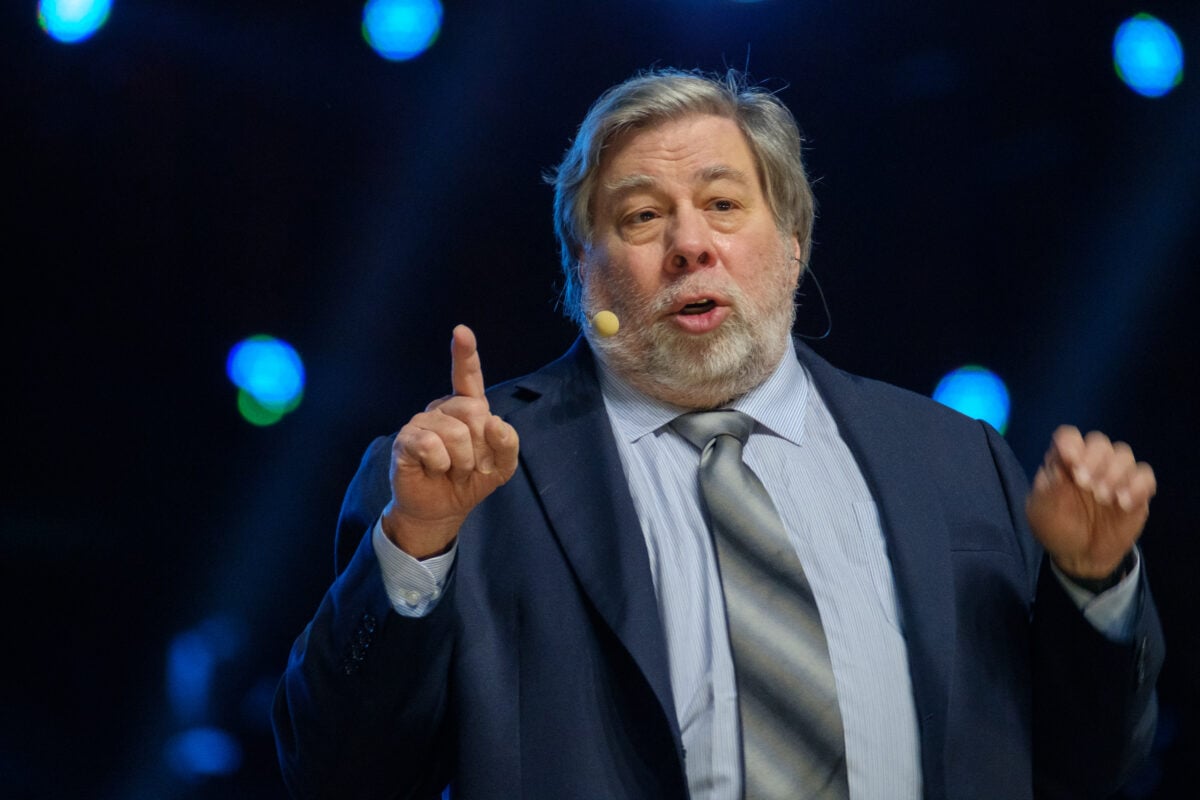TLDRs;
- Steve Wozniak joins 850 leaders urging a pause on AI superintelligence development until safety is ensured.
- Experts warn unchecked superhuman AI could threaten jobs, freedoms, national security, and human survival.
- Only 5% of US adults support rapid AI advancement; most favor regulation and safety measures.
- Frontier AI laws like California’s SB 53 may shape national AI safety and compliance standards.
Over 850 prominent figures, including Apple co-founder Steve Wozniak and Virgin Group founder Richard Branson, have called for a temporary halt to the development of superintelligent AI.
This form of artificial intelligence, capable of surpassing human cognitive abilities, raises concerns about safety, control, and societal impact.
The joint statement, released on October 22, also includes AI pioneers Yoshua Bengio, Geoff Hinton, and Stuart Russell, reflecting widespread apprehension within the technology and research community. Signatories emphasize the need for both strong public backing and a scientific consensus before advancing superintelligence projects.
Risks of Unchecked Superintelligence
The statement highlights multiple dangers associated with uncontrolled AI development. These include economic disruption, disempowerment of individuals, erosion of freedoms and dignity, national security threats, and even the extreme risk of human extinction.
Prominent supporters span a diverse range, from tech executives and academics to religious leaders, media figures, and former U.S. officials such as Susan Rice and Mike Mullen.
Their collective voice amplifies concerns about the societal and ethical ramifications of rapidly advancing AI technologies.
Survey data referenced in the statement indicates that only 5% of American adults favor fast, unregulated development of superintelligent AI. The overwhelming majority of the public supports stringent regulation, preferring that AI systems with potential superhuman capabilities be thoroughly tested and proven safe before deployment.
This public sentiment aligns with the growing call for structured oversight and transparent development processes, reflecting both caution and accountability in AI innovation.
Emerging AI Laws and Compliance
Regulatory efforts are beginning to catch up with technological advancements. California’s SB 53, effective January 2026, represents the first state-level framework targeting “frontier AI models”, highly advanced systems trained with enormous computational resources. The law sets requirements for transparency reports, safety protocols, and incident reporting within 15 days.
The legislation emphasizes independent third-party evaluation and risk assessment, creating opportunities for specialized AI assurance firms. Companies like Mindgard are already offering platforms to detect AI-specific threats, such as malicious inputs or sensitive data extraction, filling gaps highlighted by the Future of Life Institute’s 2025 AI Safety Index.
Despite opposition from tech giants like OpenAI, Meta, and Google, SB 53 could set precedents for national standards through “cooperative AI federalism,” where state regulations inform federal policy without formal preemption.
Balancing Innovation and Safety
The debate over superintelligent AI underscores a tension between rapid technological advancement and existential safety.
Advocates for a pause, led by figures like Wozniak, argue that careful oversight is essential to prevent societal harm. Meanwhile, policymakers, regulators, and the AI industry are beginning to craft frameworks to ensure that future AI systems are both safe and accountable.
The coming years will likely determine whether humanity can harness the potential of superintelligent AI while mitigating the profound risks it presents, a challenge that demands collaboration between technologists, lawmakers, and the public.







